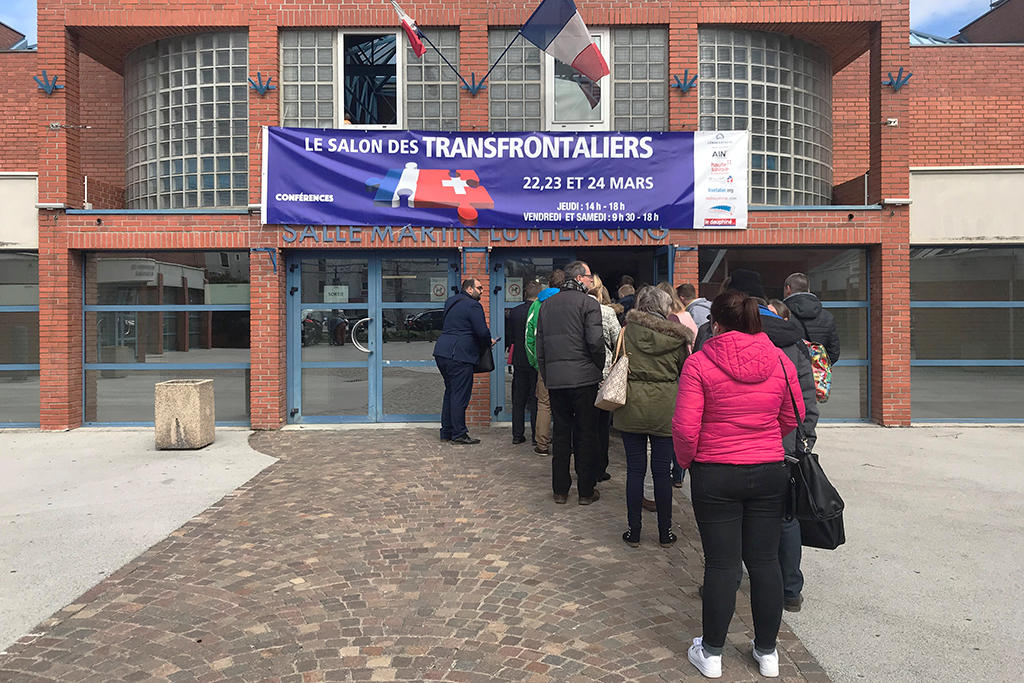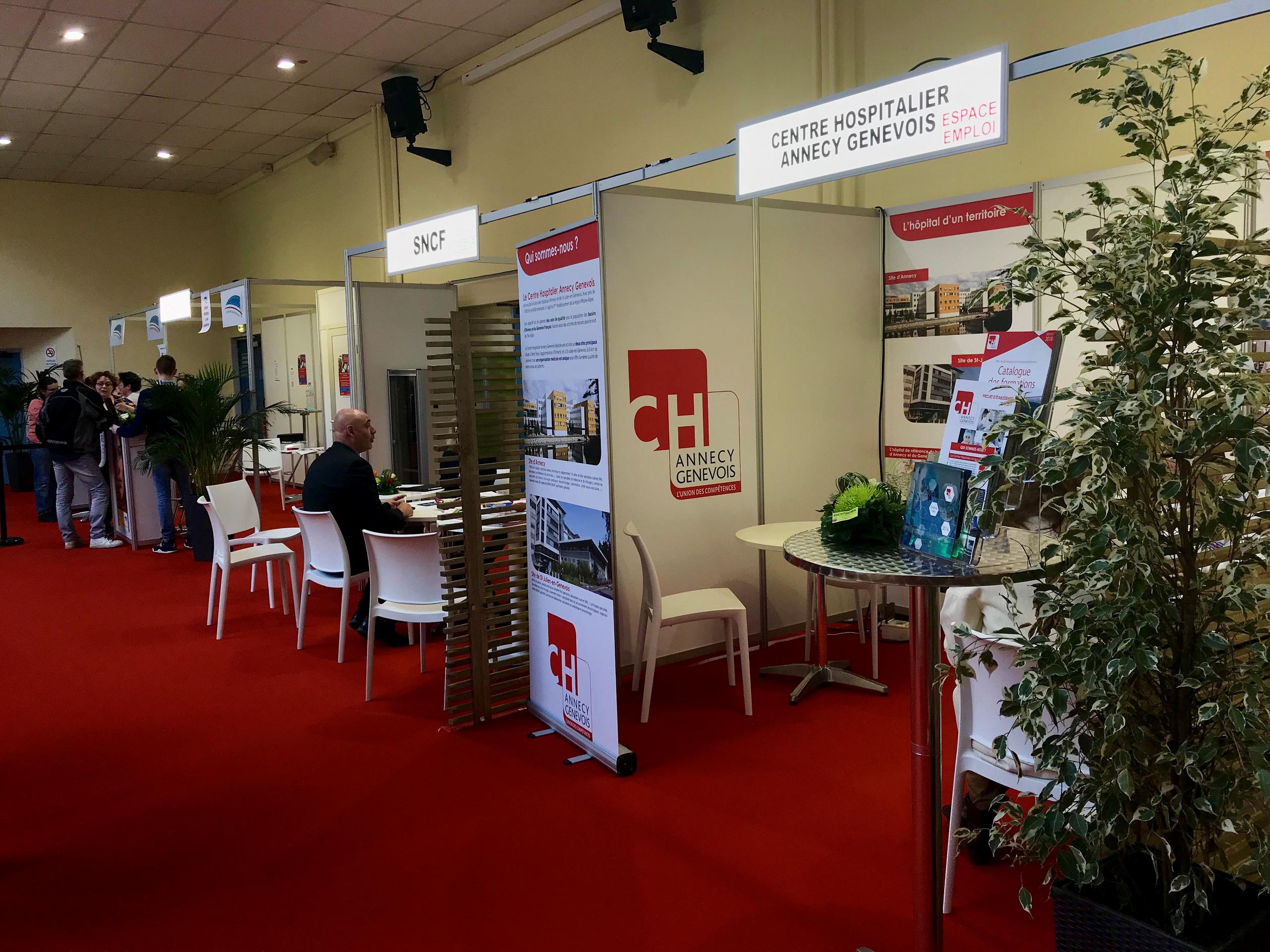Is Switzerland’s cross-border workforce at a crossroads?

Swiss salaries are a draw for cross-border workers. But Switzerland’s job market doesn’t always live up to expectations.
Thibault Torres used to work as a technician developing medical diagnostic equipment in the south of France. When he was fired because of budget cuts, he was unable to find a new job.
“In Montpellier, we have sunshine but no jobs,” he says.
Desperate, he left the coast’s warm weather to try his luck in Switzerland.

For the past two weeks, he has been staying with a friend in the Swiss-French border town of Saint-Julien-en-Genevois. He spends his days applying for jobs, to no avail. ”I’d like to get a job in watchmaking because I enjoy all the beautiful mechanisms, but the employers all require previous experience,” he says.
He’ll keep on looking for a while longer before giving up and returning to the sunshine. ”One of my friends ended up finding a job here, on the French side of the border. But she went back to Montpellier because it was not worth her while.”
On this particular day, Torres is wandering around the Salon des transfrontaliers, an annual cross-border workers’ fair organised in Annemasse, a French town near Geneva, by the European cross-border workers’ group GTE.
”I was hoping to meet Swiss recruiters but there are none,” he says, disappointed.
Changing economies
Around 30 stands provide information on cross-border issues: jobs, pensions, insurance, trade unions and even leisure.
No Swiss companies are present at the fair. The French National Railway Corporation and the Annecy Geneva hospital centre, on the other hand, are recruiting. The latter even boasts two separate stands for its Annecy and Saint-Julien sites.
There’s a shortage of nurses and caregivers in neighbouring France, partly as a result of Geneva’s tempting high wages. More than two-thirds of the nurses at the Geneva University Hospitals are of French origin.
The Salon des transfrontaliers
The Salon des transfrontaliersExternal link took place between 22 and 24 March, 2018, in Annemasse in neighbouring France. Each year, the cross-border workers’ fair is organised by the Groupement transfrontalier européen (GTE)External link.
Some 30 exhibitors, specialised in cross-border issues, advise visitors on questions that are worrying them, whether about employment in Switzerland, social welfare coverage, taxation, or services specially adapted for cross-border workers.
The GTE looks after the interests of over 100,000 cross-border workers in Geneva.
”It’s hard convincing people to stay in France for €1,450 [$1,750] a month,” says Thierry Maupin, senior health officer at Saint-Julien. The situation is especially critical in geriatrics, his department. ”In our elderly welcome care unit, we had to reduce the number of beds from 60 to 40.”
French institutions offer training opportunities to compete with Swiss hospitals.
”For example, we offer courses; after five years of work as a nurse’s aide, the person can train as a nurse,” says Maupin. Free parking and crèche places are other perks. These benefits appear to be working: ”We recruited a nurse and two nurse’s aides today.”
A couple years ago this fair was ripe with job opportunities.
”But we’ve decided to stop because Swiss companies no longer come. Swiss recruiters do not want to be visible in France,” says Laurence Coudière, communications officer for GTE.
It’s a reflection of the state of cross-border relations, she believes. ”There’s a negative anti-cross border mood that has spread because of populist party ideologies. It’s the same pattern as with the National Front in France.”

Reality check
Such tensions aren’t likely to discourage job-seekers to Switzerland though.
”Switzerland is still attractive,” Coudière says, adding however that interest in cross-border work has dropped off somewhat after peaking between 2008 and 2010. ”During that period the Geneva job market improved and many French were recruited, some coming from Paris or northern France.”
The role of the cross-border workers’ fair is also to educate job-seekers about the situation in Switzerland. ”Some people imagine they’ll double or triple their salary. But they don’t take into account the taxes, social security contributions, health insurance premiums or travel expenses,” says Coudière.
Landing a job in Switzerland can also end in disillusionment. Forty-year-old Alain lives in greater Annemasse and has been working in hospitality in Geneva for ten years. ”I’m thinking about changing my job, maybe to security or transport, because working conditions have deteriorated. With Swiss contracts you can be sacked at the drop of a hat.”
He isn’t ruling out returning to his home country, which would save money on travel.
“With Swiss contracts you can be sacked for saying the wrong thing”
Alain
Yacinthe agrees. He has worked in the Geneva hospitality industry for three decades, but he is getting ready to retire.
”Salaries are definitely better than in France but in terms of human relations the situation has deteriorated. Workers come from further and further afield, especially South America, and put up with everything. It’s a way of getting rid of cross-border workers.”
Back at the fair, French pension firm Carsat clearly has the busiest stand. Retired graphic designer Jacques is among the stand’s visitors. A resident of Annemasse, he worked in France for five years, then spent the next 43 years in Switzerland, notably as a designer for Le Temps newspaper. ”I should have received my French pension at the start of the year but I still haven’t received anything. I’ve come here to try and solve the problem.”
“I almost feel more Swiss than French”
Jacques
Despite his administrative problems, he does not regret having spent most of his career across the border. As well as the attractive wages, he feels Switzerland has many benefits.
“For me, Switzerland is great. I always felt welcome, respected. I was part of a pleasant work atmosphere. In fact, I almost feel more Swiss than French,” he says, eyes shining.
Michel Charrat, the head of the cross-border workers’ group GTE, is also convinced that Switzerland remains an ”attractive” destination. He cautions, however, that the job market in France is improving.
”Switzerland needs to be careful in how it treats cross-border workers. Otherwise, at some point, it will have to go further to find workers. And this time, the employees won’t speak the same language.”

More
Cross-border workers in Geneva face ‘toxic’ environment

In compliance with the JTI standards
More: SWI swissinfo.ch certified by the Journalism Trust Initiative












You can find an overview of ongoing debates with our journalists here . Please join us!
If you want to start a conversation about a topic raised in this article or want to report factual errors, email us at english@swissinfo.ch.